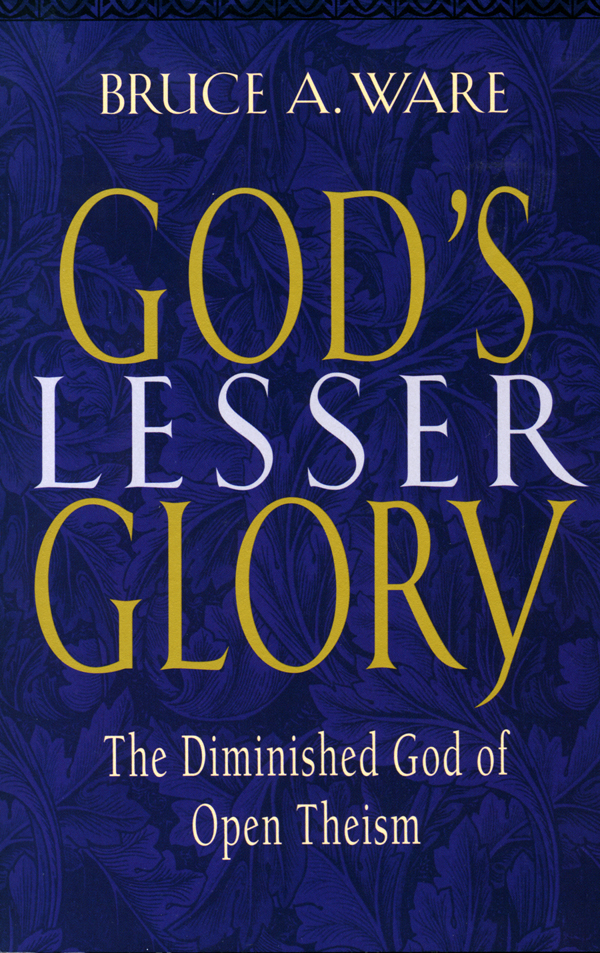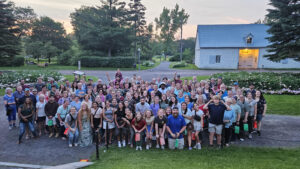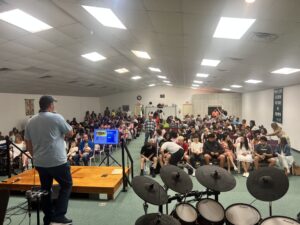
LOUISVILLE, Ky. (BP)–An updated view of God is finding its way into evangelical churches, and Southern Baptist Theological Seminary professor Bruce Ware hopes to expose this new teaching for what it is: an unbiblical redefinition of God.
This movement, known as “open theism,” proposes a view of God that is altogether different from what has been understood by the overwhelming majority of Christians throughout the history of the church.
The “openness of God” denies the classical understanding of God’s omniscience, his absolute sovereignty and several other doctrines that have traditionally served as pillars of the Christian faith.
Ware tackles this updated view of God in his new book “God’s Lesser Glory: The Diminished God of Open Theism” [Crossway]. Ware is the senior associate dean of the school of theology and professor of Christian theology at Southern Seminary. His is the first full-length attempt by an evangelical scholar at analyzing and correcting the openness view of God.
Ware intends for his book to serve as equal parts warning and corrective.
“From page one throughout the book it is very clear, I sound this warning that the openness view of God is not biblical,” Ware said. “But it is much more than just that. It is actually aiming to do two things: to show the fallaciousness of the openness view in both its scriptural and philosophical arguments. It is also intended as a corrective in showing what is right about the classical view.”
Ware shows both the central tenets of open theism and the scriptural warrant its proponents use to under gird those holdings. He interacts with the writings of leading openness theologians such as Clark Pinnock, Greg Boyd, John Sanders, William Hasker, and David Basinger, all of whom are evangelical ministers and scholars.
Central to the openness view is a denial of the exhaustive foreknowledge of God. Additionally, open theists hold that:
— God neither knows in advance the future free actions of his moral creatures nor can he control those future free actions.
— Tragic events occur over which God has no control and when they do occur, God should not be blamed because he was unable to prevent them from occurring, and he did not will or cause them to occur. God feels the pain of those who endure this suffering.
— God is love and he may be trusted always to do his best to offer guidance that is intended to serve others’ well being. However, God sometimes realizes that his guidance may have inadvertently and unexpectedly led to unwanted hardship and suffering.
— At times, God may repent of his own past actions, realizing that his own choices have not worked out well, have led to unexpected hardship and may not, in retrospect, have been best.
The God of open theism is clearly not the God of classical theism, Ware said. In addition to omniscience, the doctrines of sovereignty, providence, omnipotence, immutability and impassability — as held historically by the Christian church — are utterly recast by openness thought, he noted.
“What is ultimately at stake is the glory of God,” Ware said. “This is a complete re-definition of God as the church has understood him throughout its history.”
Ware said openness theology is not limited strictly to debates in the academy but is trickling down to laypeople. Openness beliefs will strike a cord with America’s cult of self-esteem and self-centeredness, he said.
“Those who hold to the openness view of God present their God as more caring and loving and relational and connected to us, and I think that will resonate with a lot of people, especially in an age when self-esteem and feeling good about yourself is at a premium.
“I am prayerful about this because I really think it is something that will appeal to a wide audience. Many laypersons may say, ‘It [appears to be] based on Scripture, it must be true.’ That’s the main reason I felt a deep need to write this book.”
“God’s Lesser Glory” received brief recognition and commendation in a recent “World” magazine editorial written by editor Marvin Olasky.
“Mr. Ware provides scriptural affirmation of exhaustive divine foreknowledge and shows how open theism harms prayer lives, weakens our confidence in God’s guidance, and leads to despair amid the suffering and pain,” Olasky wrote.
In “God’s Lesser Glory,” Ware commits 76 of the book’s 230 pages to analyzing and interacting through Scripture with open theism’s denial of God’s exhaustive foreknowledge. Open theists use Bible passages such as Genesis 22:12 — Abraham’s near-sacrifice of his son Isaac and God’s supposed learning that Abraham is faithful by his willingness to slay the boy — to say that God learns about the future as it unfolds.
They affirm God’s growth in knowledge from Genesis 22 while avoiding the implication that God lacks knowledge of the past and present if an openness interpretation were to be given of Genesis 18:20-21.
Ware shows the inconsistent manner in which open theists interpret passages that ostensibly reveal God’s limited future knowledge, while simultaneously affirming God’s perfect knowledge of both the past and presence, as well as his omnipresence.
Writes Ware: “Hermeneutical consistency, it would seem, requires that if Genesis 22:12 means that God learned something new, as open theists claim, then Genesis 18:21 means that God does not know all of the past or present and that he is spatially confined. So which should it be? Shall we follow the openness approach consistently and deny even more of God’s attributes than have already been trimmed away?
“Or shall we, with great caution and care, consider whether Scripture elsewhere teaches, with sufficient clarity and fullness, that God in fact knows the past, present, and future and is everywhere present, in order then to reconsider the narrative and personal dialogue form of these Genesis texts (and others), to discern in them their proper and intended meanings?”
Is open theism a Christian heresy or merely a viable alternative by which evangelicals may view God?
“I prefer the term unbiblical because it is a far more serious indictment than even the term ‘heresy,'” Ware said, “because Scripture rings clear in affirming the classical view of God. We must be charitable in this debate, but at the same time we have to be unmovable in affirming the classic doctrine of God, because ultimately, his glory is at stake.”
–30–
(BP) photo posted in the BP Photo Library at www.bpnews.net. Photo title: NEW BOOK.
















